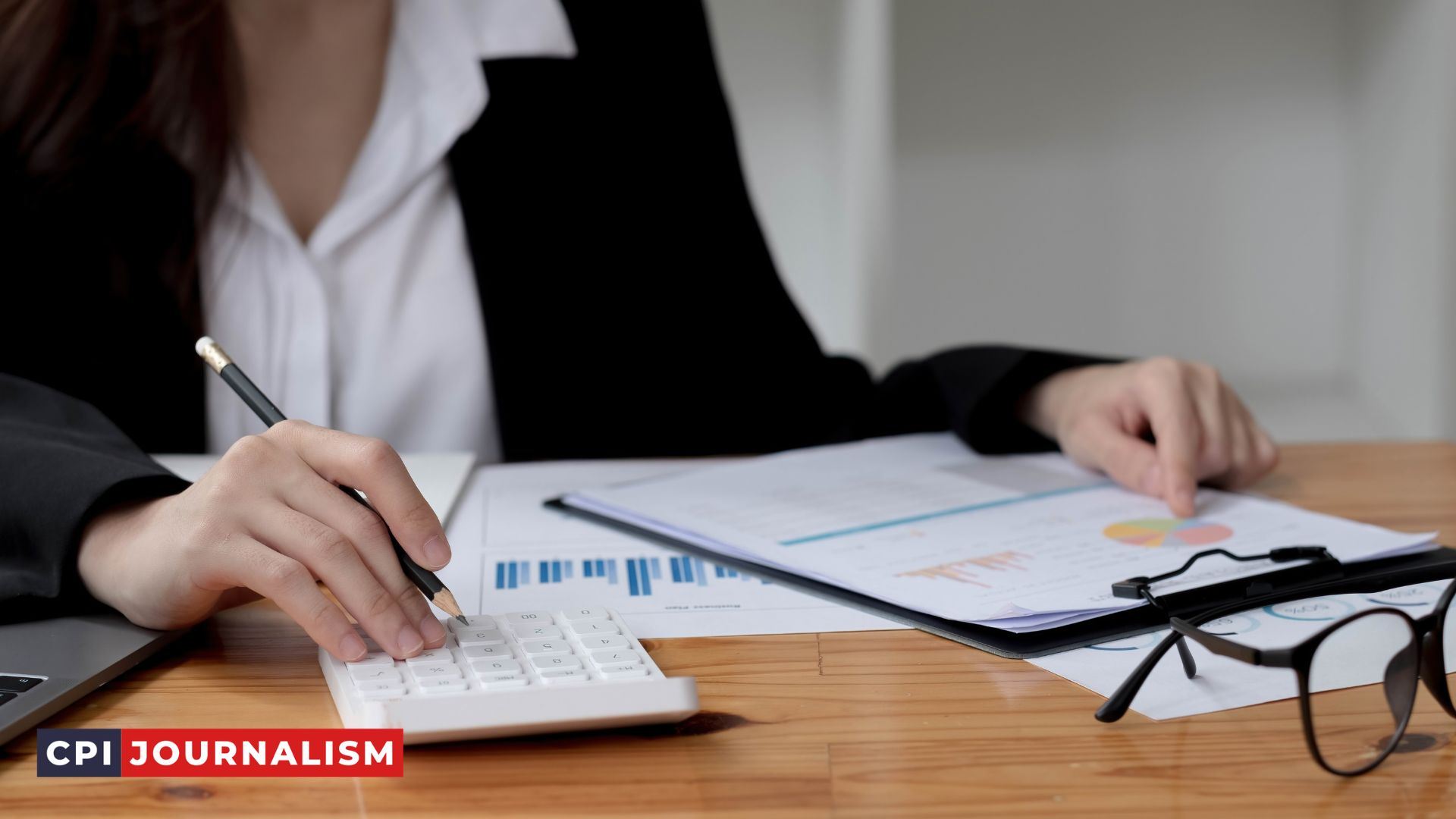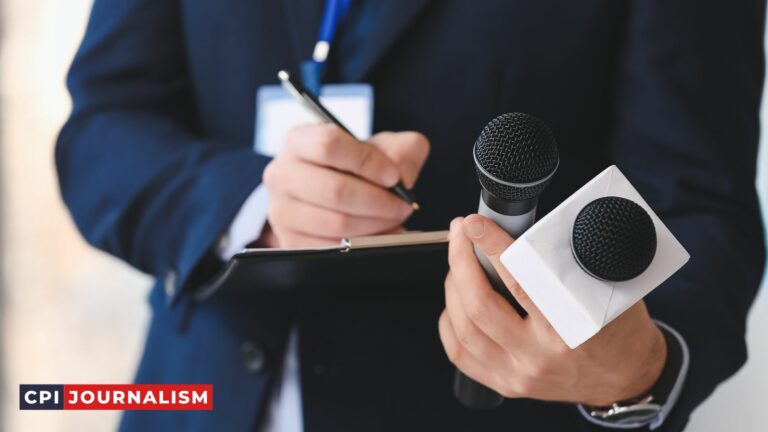How Can Journalists Balance The Need For Accuracy And Fairness With The Pressure To Publish First In Investigative Reporting?
As an experienced investigative journalist, I know all too well the pressure to be the first to publish an important story.
With the rapidly expanding digital news landscape, the need to be ahead of the competition has never been greater.
But of course, accuracy and fairness must never be sacrificed in the rush to publish. In this article, I will explain how journalists can navigate this tricky balancing act, ensuring that the stories they report remain both accurate and fair.
A. Overview of the Need for Accuracy and Fairness
As an experienced journalist, I can tell you that accuracy and fairness are essential to the craft of investigative reporting.
Journalists have a responsibility to their readers to ensure that the information they present is accurate and balanced. Accuracy and fairness should always take precedence over the pressure to publish first.
Accuracy is a cornerstone of journalism, and investigative reporters must be thorough in their research and reporting to ensure that all facts are correct. Reporters should also strive for fairness, meaning that all sides of the story should be presented in an unbiased manner.
This means that journalists should not take sides or be swayed by external pressures. As an investigative reporter, you must be prepared to dig deep and uncover the truth, even if it is difficult or uncomfortable.
It is also important to remember that accuracy and fairness are not mutually exclusive; they should both be considered when reporting on a story.
Reporters should strive to present the facts accurately and fairly, and should be open to exploring all angles of a story.
It is essential to balance the need for accuracy and fairness with the pressure to publish first, as these two elements are the foundation of good investigative reporting.
B. Overview of the Pressure to Publish First
As an experienced journalist, I understand the immense pressure to publish first in the world of investigative reporting.
This pressure often comes from competing news outlets, and even sometimes from the public’s demand for immediate information.
As a journalist, it is essential to remain aware of this pressure while also making sure to adhere to the strict standards of accuracy and fairness that investigative reporting requires.
When the pressure to publish first feels overwhelming, it is important to remember that accuracy and fairness should always be the top priority. It is possible to be the first to publish without sacrificing the quality of the report.
This can be done by making sure that the information is thoroughly vetted and all sources are reliable. Additionally, it is crucial to provide a balanced perspective on the story by including a variety of viewpoints.
It is also important for journalists to remain aware of the potential for bias in their reporting, even when the pressure to publish first is high.
Investigative journalism often involves reporting on controversial topics, and it is necessary to remain mindful of one’s personal biases and strive to provide an impartial perspective.
Finally, it is important to remember that investigative journalism is an ongoing process. As news outlets move quickly to publish their stories, it is crucial to continue to monitor the story and update it as new information becomes available.
This is a key part of investigative reporting, and it is essential to maintain accuracy and fairness even as the pressure to break the story first intensifies.
Challenges Of Balancing Accuracy And Fairness With The Pressure To Publish First
Balancing accuracy and fairness with the pressure to publish first is one of the most difficult challenges in investigative reporting. As an experienced journalist, I have encountered this dilemma many times over the course of my career.
It is important to recognize that accuracy and fairness must always take precedence over the need to publish first.
Accuracy and fairness are essential components of ethical investigative reporting. Journalists must ensure that the facts they present are correct and that they are treating all parties fairly.
This is particularly true when it comes to investigative reporting, as the stakes are often higher. Inaccurate or biased reporting can have serious consequences, ranging from an individual’s reputation being harmed to public policy being changed.
At the same time, investigative reporters often face pressure to be the first to publish their findings in order to break a story. The competition to be the first to break a story can be intense, and it can be tempting to cut corners in order to race ahead of the competition.
However, this often leads to mistakes or oversights that can undermine the accuracy and fairness of the article.
The key to avoiding this dilemma is to prioritize accuracy and fairness over the need to publish first. It is important for reporters to take the time to double-check their facts and to ensure that all parties involved have had a chance to comment.
This may mean that a story is not published as quickly as the competition, but it also ensures that the story is as accurate and fair as possible.
By taking the time to double-check facts and to ensure fairness, reporters can ensure that their stories are of the highest quality and that their credibility remains intact.
A. The Risk Of Publishing Inaccurate Information
As an experienced journalist, I understand the importance of accuracy and fairness when it comes to investigative reporting.
It is essential that journalists take the necessary steps to ensure that their reporting is accurate and balanced, otherwise they risk publishing inaccurate information.
If inaccurate information is published, it can have serious repercussions for the journalist, their publication, and the public.
Inaccurate information can also have a long-lasting effect on the reputation of the publication. If readers find that a publication has published inaccurate information, they may be less likely to trust the publication in the future. This can lead to a loss of readership and, ultimately, a loss of revenue.
Inaccurate information can also lead to legal risks for the journalist and the publication. If a journalist publishes inaccurate information and it is shown to be libelous or defamatory, the journalist and the publication can be held liable for any damages caused.
Finally, inaccurate information can have a detrimental effect on the public. If journalists publish inaccurate information, it could lead to a false narrative and the public could be misled. This can have a lasting effect on public opinion and lead to confusion and mistrust of the media.
For these reasons, it is essential that journalists take the necessary steps to ensure accuracy and fairness when it comes to investigative reporting.
They must be willing to take the time to research and verify their information, and be willing to accept that their story may not be the first one to break. This will help them to avoid the risks associated with publishing inaccurate information.
B. The Risk of Publishing Unfair Information
As an investigative journalist, it is essential to maintain a sense of accuracy and fairness in all reporting. It is the responsibility of a journalist to ensure that the information they publish is not only accurate, but also fair.
Unfortunately, the pressure to be the first to publish can lead to a situation where a journalist, in an effort to beat the competition, may unknowingly publish inaccurate or unfair information.
When a journalist publishes inaccurate or unfair information, it can have serious consequences, both for the public and the journalist.
The public may be misled and the journalist’s credibility may be damaged. Furthermore, if the journalist is found to be guilty of publishing inaccurate or unfair information, they may face legal action.
Therefore, it is essential for a journalist to be aware of the risks associated with publishing inaccurate or unfair information, and to take steps to ensure that the information they publish is both accurate and fair.
This includes doing thorough research, verifying all sources, and double-checking facts before publishing. Additionally, it is important to be mindful of any potential conflicts of interest and to avoid making assumptions or taking sides in any reporting.
By being mindful of the potential risks and taking the necessary steps to ensure accuracy and fairness, journalists can balance the need for accuracy and fairness with the pressure to publish first.
C. The Risk Of Missing Out On A Scoop
The pressure to publish first as a journalist is real and often comes with the risk of missing out on a scoop. It is important for journalists to weigh their options carefully when deciding how to approach a story, especially when it comes to investigative reporting.
Journalists must balance the need for accuracy and fairness with the pressure to publish first so that they do not miss out on a potential scoop.
The risk of missing out on a scoop is a real concern for journalists and one that should be taken seriously. It is important to remember that being first is not always the most important factor when it comes to journalistic integrity.
Although it can be tempting to rush to publish a story before anyone else, it is essential to remember that accuracy and fairness should always come first.
In order to avoid the risk of missing out on a scoop, journalists should start their investigations early.
By doing extensive research and fact-checking, journalists can ensure that they have the most accurate and up-to-date information when the story is ready to be published. This will also help journalists to avoid any potential legal issues that may arise from inaccurate reporting.
Additionally, journalists should be aware of the potential for a scoop to come from multiple sources. It is important for journalists to remain vigilant and to be aware of any potential stories that may arise.
By being aware of what other news outlets are reporting on, journalists can ensure that they are not left behind in the race to be the first to break a story.
Finally, journalists should be aware of their own ethical standards and should never sacrifice accuracy or fairness in order to be the first to publish a story.
It is essential that journalists prioritize accuracy and fairness when it comes to investigative reporting, even if it means that they risk missing out on a scoop.
Overall, the risk of missing out on a scoop is a real concern for journalists. It is important to remember that accuracy and fairness should always come first, even if it means risking missing out on a scoop.
By doing extensive research and fact-checking, remaining vigilant, and prioritizing accuracy and fairness, journalists can ensure that they are not left behind in the race to be the first to break a story.
D. The Risk of Legal Action
Investigative reporting can be a risky undertaking, especially when it comes to legal issues. As a journalist, you must be aware of the potential for legal action being taken against you or your publication.
Even if you are confident that your reporting is accurate and fair, it’s important to remember that any false or defamatory statements can open you up to a lawsuit.
To protect yourself and your publication, it is important to be aware of the legal principles associated with investigative reporting.

For example, you should be aware of the differences between libel and slander, and the implications of making false or defamatory statements.
You should also understand the various privacy laws that protect individuals’ rights to confidentiality.
In addition to understanding the legal principles, you should also have a good understanding of the legal risks associated with investigative reporting.
For example, you should be aware of the potential for libel lawsuits, and the potential for punitive damages if you are found to have made false or defamatory statements. You should also be aware of the potential for civil lawsuits if you have infringed on a person’s privacy rights.
Ultimately, it is important to remember that the potential for legal action is an inherent risk in investigative reporting.
As a journalist, it is your responsibility to understand the legal implications of your reporting and to protect yourself from potential legal action.
III. Strategies for Balancing Accuracy and Fairness with the Pressure to Publish First
As journalists, we are constantly under immense pressure to publish first, especially in the case of investigative reporting. However, with this pressure comes the responsibility to maintain accuracy and fairness in our reporting.
In order to achieve this balance, here are some strategies that can be employed to ensure that accuracy and fairness is not compromised while publishing first.
First and foremost, it is essential to verify the facts and sources of information used in the report. This includes double checking the facts, cross-referencing the data, and making sure all sources are reliable. It is also important to use multiple sources to corroborate the information.
This will help ensure that the facts are correct and that the reporting is unbiased.
Second, it is important to maintain a sense of objectivity in the reporting. This means not presenting a one-sided narrative but presenting both sides of the story. It is also important to avoid making assumptions and speculations and to present the facts as they are.
Third, it is key to be aware of any potential conflicts of interest that may arise in the reporting. This includes ensuring that sources are not biased or have a vested interest in the story.
It is also important to refrain from taking a stance in the reporting but instead to present both sides of the story objectively.
Finally, it is important to maintain accuracy and fairness in the reporting even under pressure to publish first. This can be done by fact-checking the information, being aware of potential conflicts of interest, and refraining from making assumptions.
These strategies will help ensure that accuracy and fairness is maintained in investigative reporting and that the pressure to publish first does not compromise the quality of the work.
A. Establishing Clear Guidelines
As an experienced journalist, I believe that it is essential for journalists to establish clear guidelines for investigative reporting in order to balance the need for accuracy and fairness with the pressure to publish first.
These guidelines should be adapted to the specific investigative story being reported, and should be revisited regularly as new information comes to light.
The first step in establishing clear guidelines is to identify the key questions and issues that need to be addressed in the investigative story. This process should involve assessing the available evidence and determining the most important facts.
Once the key questions and issues have been identified, the next step is to establish a timeline for the investigation, including deadlines for gathering and verifying information.
Next, journalists should identify the sources of information that will be needed for their investigative story. This may include interviewing key individuals, obtaining public records, and researching existing documents.
Journalists should also identify any potential conflicts of interest that may arise from their sources and consider how these may affect their reporting.
Finally, journalists should develop a plan for verifying the accuracy of their reporting. This may include double-checking facts and figures, researching any potential conflicts of interest, and thoroughly reviewing any documents.
Journalists should also consider the implications of any facts that remain unverified, and should take steps to ensure that any unverified information is clearly identified as such.
By establishing and following clear guidelines for investigative reporting, journalists can ensure that their reporting is both accurate and fair, while still meeting the pressure to publish first.
Establishing A Standard for Accuracy
As an experienced journalist, I believe that accuracy must be the top priority when it comes to investigative reporting. We must be able to trust that the information we are providing to the public is correct and reliable.
That is why it is so important to establish a standard for accuracy that all journalists must adhere to.
The accuracy standard should be clear and unambiguous. It should require that all sources and facts be thoroughly checked and verified, and that all reporting be based on reliable and accurate information.
Additionally, journalists should strive to provide context and perspective in their reporting, to ensure that the public has a complete understanding of the story.
Accuracy should also be a priority when it comes to deadlines. Journalists should not cut corners in order to meet a deadline, but should instead take the time to make sure that the information they are providing is accurate and reliable.
Finally, accuracy should be a priority when it comes to corrections. All corrections should be made promptly and prominently, so that the public can be assured that the information they are receiving is accurate and up-to-date.
By establishing a standard for accuracy and adhering to it, journalists can ensure that their investigative reporting is reliable and trustworthy, and that the public can have faith in the information they are receiving.
2. Establishing A Standard for Fairness
It is essential for journalists to establish a standard for fairness in investigative reporting. The first step is to ensure the accuracy of their reporting, which means double-checking facts, sources, and information to ensure they are reliable and verifiable.
Additionally, journalists should make sure they are presenting both sides of the story fairly and objectively. This means protecting the rights of those they are writing about, avoiding bias, and providing context and explanations when needed.
In addition to accuracy and fairness, it is important for journalists to remain impartial and avoid being influenced by any personal opinions or agendas. They should also be aware of any potential conflicts of interest, and be sure to disclose them.
Finally, journalists should consider the human impact of their stories, and take care to ensure that the people they are writing about are not unduly harmed by their reporting.
By following these guidelines, journalists can ensure that their reporting is fair and accurate, even when under pressure to publish first. This will help them maintain the trust of their readers, and ensure that their investigative reporting is of the highest quality.
3. Establishing A Standard for Legal Compliance
It is paramount for journalists to adhere to a high standard of legal compliance when engaging in investigative reporting.
A journalist needs to be aware of their legal rights and obligations when gathering and sharing information. This is especially important when dealing with confidential sources and sensitive information.
First and foremost, journalists should be aware of the laws and regulations pertaining to the jurisdiction in which they are working. For example, libel laws differ from country to country, and journalists must be familiar with these laws in order to avoid any legal issues.
Journalists should also be up to date on regulations regarding the protection of confidential sources and the proper use of public records and other documents.
In addition, journalists should consider the ethical implications of their reporting. They must be aware of their own biases and the potential for perceived unfairness in their reporting.
Furthermore, it is important for journalists to be transparent about their sources and to clearly communicate the context in which their information was acquired.
Finally, journalists should seek legal advice when necessary. If a journalist is faced with a situation for which they are unclear about the legal implications, it is advisable to seek the advice of an experienced attorney.
This will ensure that the journalist is protected from any potential legal issues and will help to ensure that the reporting is accurate and legally compliant.
B. Developing a System for Fact-Checking
Accuracy and fairness are essential elements of investigative reporting. To ensure that these standards are met, journalists should develop a system for fact-checking. This system should be comprehensive, covering all aspects of the investigation, including sources, facts, and conclusions.
The system should also be systematic and replicable. This will ensure that all investigations meet the same standards of accuracy and fairness. It is important that the system is reliable and consistent, so that the process of fact-checking can be repeated for each investigation.
When investigating a story, a journalist should begin by gathering reliable sources of information. These can include official documents, interviews with people involved, and other publicly available information. All sources should be verified for accuracy and credibility.

Once the sources have been gathered, the journalist should review the facts presented in the story. This includes verifying the accuracy of dates, times, places, and other details. All facts should be cross-referenced with multiple sources to ensure accuracy.
Finally, the journalist should assess the conclusions of the story. This assessment should be based on the facts presented and the sources used. The journalist should consider alternative interpretations of the facts and be aware of any potential biases that may be influencing the story.
Developing a system for fact-checking can help journalists ensure the accuracy and fairness of their investigative reporting. It is important that the system is comprehensive, systematic, and reliable so that the standards of accuracy and fairness are met.
1. Establishing a Process for Fact-Checking
Fact-checking is a critical component of any investigative reporting. It is essential for journalists to make sure that the facts they present are accurate and that their stories are fair. As such, it is important for journalists to develop a process for fact-checking that is thorough and reliable.
First, journalists should research and collect as much information as possible about the subject of their investigation. This includes interviews with sources, gathering documents and records, and reviewing any relevant literature.
All of this information should be cross-referenced and verified against other sources.
Second, journalists should strive to be objective and impartial in their fact-checking. This means looking at the facts from all sides and avoiding biased or prejudiced interpretations.
Journalists should also avoid relying too heavily on one source of information; instead, they should strive to corroborate their findings with multiple sources.
Third, it is important to note that fact-checking is an ongoing process, not a one-time event. As new information becomes available, journalists should revisit their stories and update them as necessary. This helps to ensure that their reporting remains accurate and up-to-date.
Finally, it is important for journalists to make sure that their fact-checking process is transparent. This means that they should clearly communicate the methods and criteria they use for fact-checking, so that readers can understand the process and trust in the accuracy of the reporting.
2. Utilizing Multiple Sources for Fact-Checking
One of the best ways to ensure accuracy and fairness in investigative reporting is to use multiple sources for fact-checking.
By utilizing multiple sources, journalists can gain a better understanding of the facts surrounding the story and can better assess the reliability of any information they are presented with.
When verifying facts, journalists should seek out multiple sources. This includes primary sources, such as eyewitnesses or experts, as well as secondary sources, such as published articles, books, or official documents.
When consulting primary sources, it is important to ask open-ended questions that allow sources to provide as much detail as possible. Additionally, it is important to ask follow-up questions to ensure accuracy and to ensure that sources’ statements are consistent with one another.
When verifying facts with secondary sources, journalists should look for the most reliable and up-to-date sources available. This includes consulting sources that are independent, unbiased, and well-regarded.
Additionally, journalists should be aware of the potential for bias in certain sources, such as those with a political or ideological agenda. Finally, journalists should take the time to read and understand the source material, rather than simply relying on summaries or quotes from others.
In addition to using multiple sources for fact-checking, it is important for journalists to use their own judgement when assessing the accuracy and fairness of information.
By conducting thorough research and using critical thinking, journalists can make informed decisions about which facts to include in their stories, and how to present them in a fair and impartial way.
C. Utilizing Technology to Streamline the Process
Technology has revolutionized the investigative reporting process, allowing journalists to streamline their workflow and reduce the time it takes to publish a story.
There are many tools available that can help journalists manage their data collection and analysis, from online databases to sophisticated software programs.
One of the most important pieces of technology for investigative journalists is a good search engine. With a powerful search engine, journalists can quickly find relevant information for their stories.

For example, a journalist may use a search engine to find articles written by experts on a particular topic, or to locate publicly available documents related to their story.
Another useful tool is data analysis software. This type of software can quickly crunch large amounts of data and generate charts, graphs, and other visualizations to help journalists make sense of their findings.
It can also be used to automate the process of verifying facts and cross-checking sources.
Finally, journalists can use social media to their advantage. Social media platforms such as Twitter, Facebook, and Instagram can be used to quickly uncover leads and connect with sources.
They can also be used to share stories with a wider audience and to solicit feedback from readers.
By utilizing the right technology, journalists can make the investigative reporting process more efficient, allowing them to publish their stories quickly and accurately.
1. Utilizing Automated Fact-Checking Tools
In investigative reporting, the need for accuracy and fairness is paramount. But, with the pressure to publish first, journalists can face a difficult balancing act. Fortunately, there are automated fact-checking tools available to help them meet the challenge.
Automated fact-checking tools are computer programs that can detect errors and inconsistencies in a text. They scan documents and flag potential issues, such as inaccurate or out-of-date information, spelling and grammar errors, and inconsistencies between multiple sources.
When using an automated fact-checking tool, it is important to remember that it is not infallible. The tool is only as good as the data it has access to, so journalists should supplement its findings with their own research.
Additionally, automated fact-checking tools may not be able to detect subtle nuances, such as bias or false equivalence.
However, when used in conjunction with other fact-checking techniques, automated tools can be a valuable asset for investigative reporters. By providing a quick and efficient way to scan documents for errors, they can help ensure accuracy and fairness in investigative reporting.
2. Utilizing Automated Publishing Tools
The advent of automated and algorithmic publishing tools has revolutionized the way investigative reporting is done. By utilizing such tools, journalists can cover complex topics and quickly disseminate information while maintaining accuracy and fairness.
One of the most important tools at a journalist’s disposal is automated fact-checking. This tool allows journalists to quickly verify the accuracy of information and sources. Automated fact-checking can also help journalists decide which sources are reliable and which are not.
This can help ensure that only accurate information is disseminated, while avoiding potential libellous claims.
Another important tool is automated data analysis. This tool allows journalists to quickly sift through large amounts of data in order to identify meaningful trends, correlations, and connections. This can be used to quickly uncover hidden facts and stories.
Algorithmic publishing tools can also be used to quickly disseminate information. Automated publishing tools such as Twitter bots and RSS feeds can be used to quickly and accurately share news articles and investigative reports.
This can help journalists beat the competition and ensure that their stories reach a wide audience.
Finally, automated tools can be used to create multi-media stories. By utilizing automated tools such as video editing software, journalists can quickly create compelling multi-media stories that engage and inform readers.
Utilizing automated publishing tools can help journalists balance the need for accuracy and fairness with the pressure to publish first in investigative reporting.
By taking advantage of the tools available, journalists can quickly uncover stories, verify facts, and disseminate accurate information while maintaining their reputation for accuracy and fairness.
3. Utilizing Automated Legal Compliance Tools
In investigative reporting, accuracy and fairness must be balanced with the pressure to publish first in order to maximize the impact of the story.
Journalists must ensure that their reporting complies with all relevant laws and regulations, making it necessary to employ automated legal compliance tools.
These tools can help journalists to identify and flag potential issues with the content before it is published, saving time and ensuring that the reporting remains compliant.
One automated legal compliance tool that can be used is a “red flag” system. This system identifies any potential legal issues that may arise from publishing a story and alerts the journalist to them before the story is published.
These issues could include defamation, copyright infringement, or other potential legal violations. The system can also be configured to send out automated notifications to the journalist if any changes are made to the story before it is published.
Another automated legal compliance tool is a “checklist” system. This system is designed to help journalists to quickly check that the content they are creating is compliant with all relevant laws and regulations.
The system can provide quick checks on issues such as libel, slander, copyright infringement, and other potential legal violations. The checklist can help journalists to quickly identify any potential issues that could arise from publishing the story and take corrective action if necessary.
Finally, automated legal compliance tools can also be used to help journalists to quickly identify any potential ethical issues that may arise from their reporting.
Ethical issues such as privacy, conflict of interest, and bias can be flagged by the system before the story is published, allowing the journalist to make any necessary changes to ensure that the story is fair and accurate.
Overall, using automated legal compliance tools can help journalists to balance the need for accuracy and fairness with the pressure to publish first in investigative reporting.
By using such tools, journalists can quickly identify any potential legal or ethical issues that may arise from their reporting and take corrective action if necessary.
IV. Conclusion
In conclusion, the need for accuracy and fairness when conducting investigative reporting is paramount.
It is essential for journalists to be mindful of the potential for bias and to remain impartial in their reporting. It is also important for journalists to ensure that the information they are gathering is reliable and verifiable.
At the same time, it is necessary to balance this need for accuracy and fairness with the demand for fast-paced reporting.
Journalists should be mindful of the potential for errors and take the necessary steps to ensure that the information they are reporting is accurate and fair.
By taking the time to ensure accuracy and fairness, journalists can maintain the integrity of their reporting and meet the demands of their readers.
A. Summary of the Challenges of Balancing Accuracy and Fairness with the Pressure to Publish First
Balancing accuracy and fairness with the pressure to publish first in investigative reporting is a difficult challenge that all journalists must face.
This challenge is especially difficult in today’s digital media landscape, where news is released at lightning speed and competition is fierce.
There is immense pressure to publish the story first and beat out the competition. However, accuracy and fairness should never be sacrificed in the pursuit of the story.
Accuracy is of utmost importance in investigative reporting. Journalists must ensure that the facts are accurate and all sources are verified. This requires fact-checking, which can take significant time and effort.
Furthermore, it is important to make sure that the story is fair and that all sides of the issue are represented. This requires extensive research and interviewing of all parties involved. This can be a time-consuming process that may conflict with the pressure to publish the story quickly.
In addition, the pressure to publish first can lead to sloppy and rushed reporting. Journalists may take shortcuts to get the story out quickly and may miss important facts or leave out crucial elements of the story. This can lead to inaccurate or incomplete reporting that is not fair to the subjects of the story.
To balance the need for accuracy and fairness with the pressure to publish first, it is important to plan ahead. Journalists should set realistic deadlines and create a timeline to ensure that they have enough time to research and verify the facts before they publish the story.
Furthermore, journalists should have a thorough understanding of the story before they embark on their reporting and should make sure that they have all of the facts before they publish.
Finally, it is important to stay focused on the facts, no matter the pressure to publish first. With careful planning, accuracy and fairness can be achieved without sacrificing speed.
B. Summary of Strategies for Balancing Accuracy and Fairness with the Pressure to Publish First
Balancing accuracy and fairness with the pressure to publish first in investigative reporting can be a delicate task.
As an experienced journalist, Here are some strategies to help you navigate this challenge:
1. Take Your Time: Don’t rush to publish your story. Take the necessary time to verify all facts and ensure your story is as accurate and fair as possible.
2. Double-check Your Sources: Double-check the accuracy of your sources and the information they provide.
3. Get a Second Opinion: When in doubt, ask a colleague or fellow journalist to review your story and provide feedback.
4. Use Multiple Sources: Use multiple sources to corroborate your information and verify its accuracy.
5. Be Transparent: Be transparent with your sources and readers about your process. Let them know if you are relying on anonymous sources and why.
6. Seek Outside Expertise: Seek outside expertise to verify your story and provide a balanced perspective.
7. Don’t Sacrifice Quality: Always strive for quality. Don’t sacrifice accuracy and fairness for speed.
By following these strategies, you can ensure that your investigative reporting is accurate, fair and timely.







